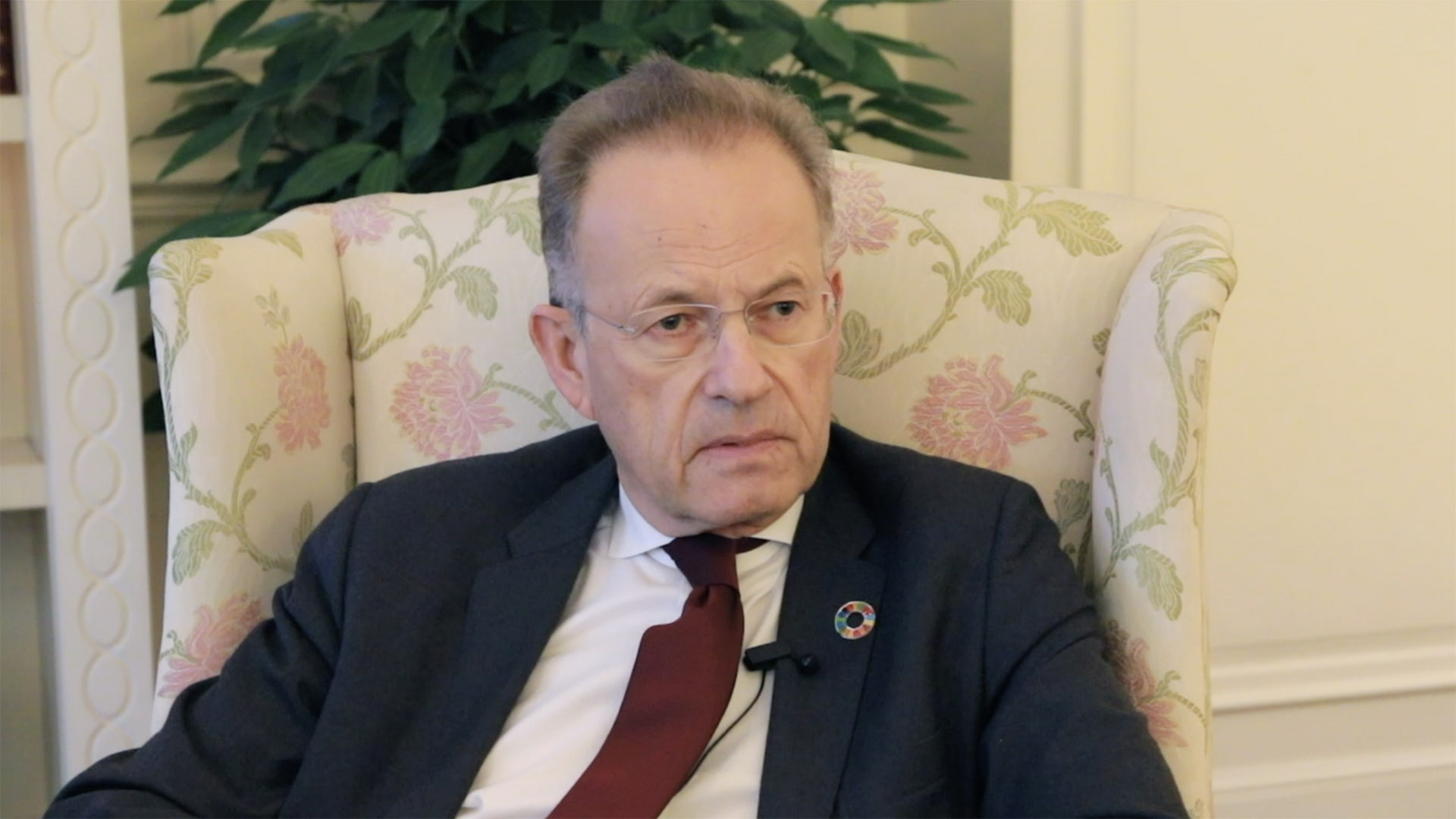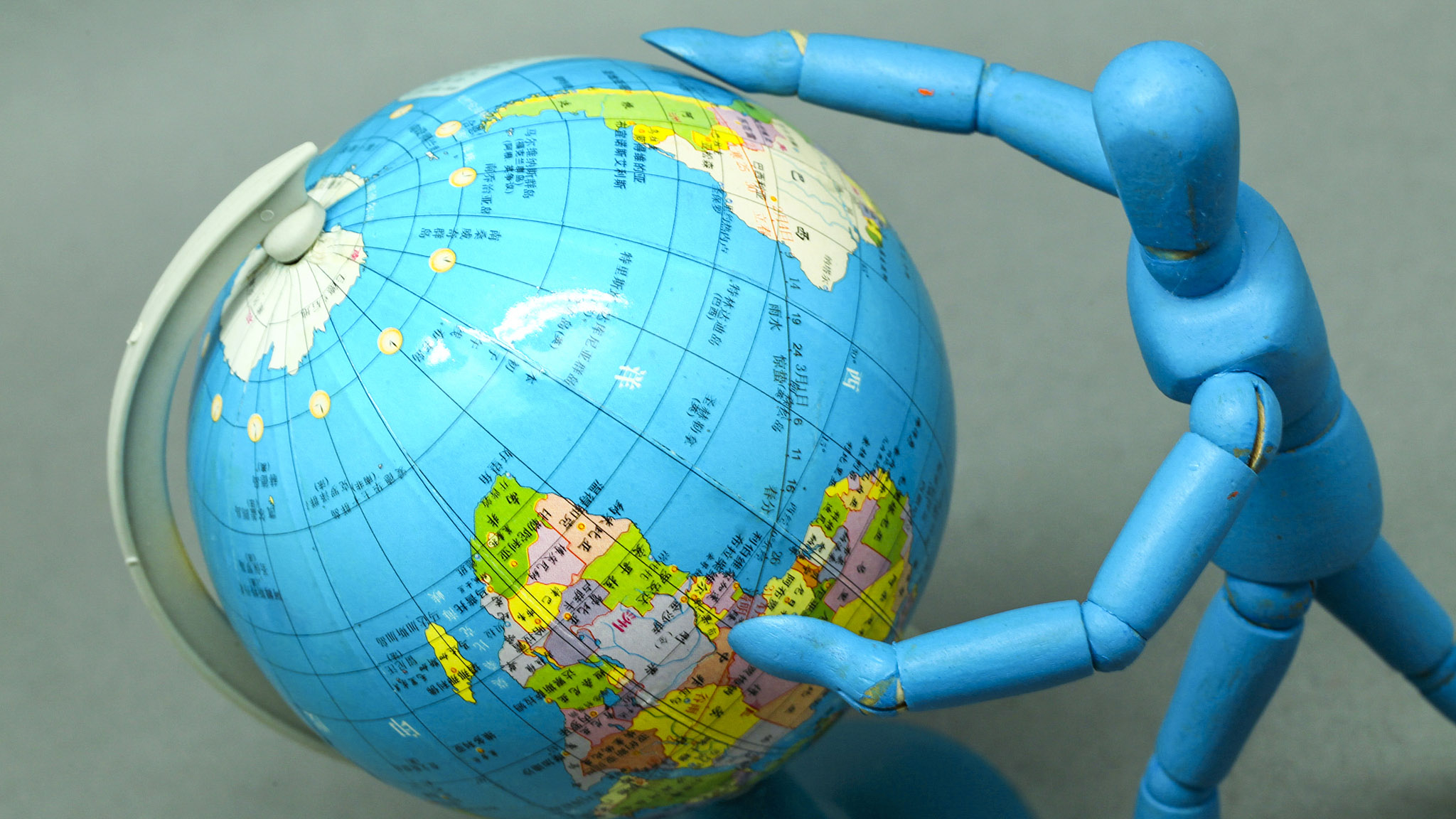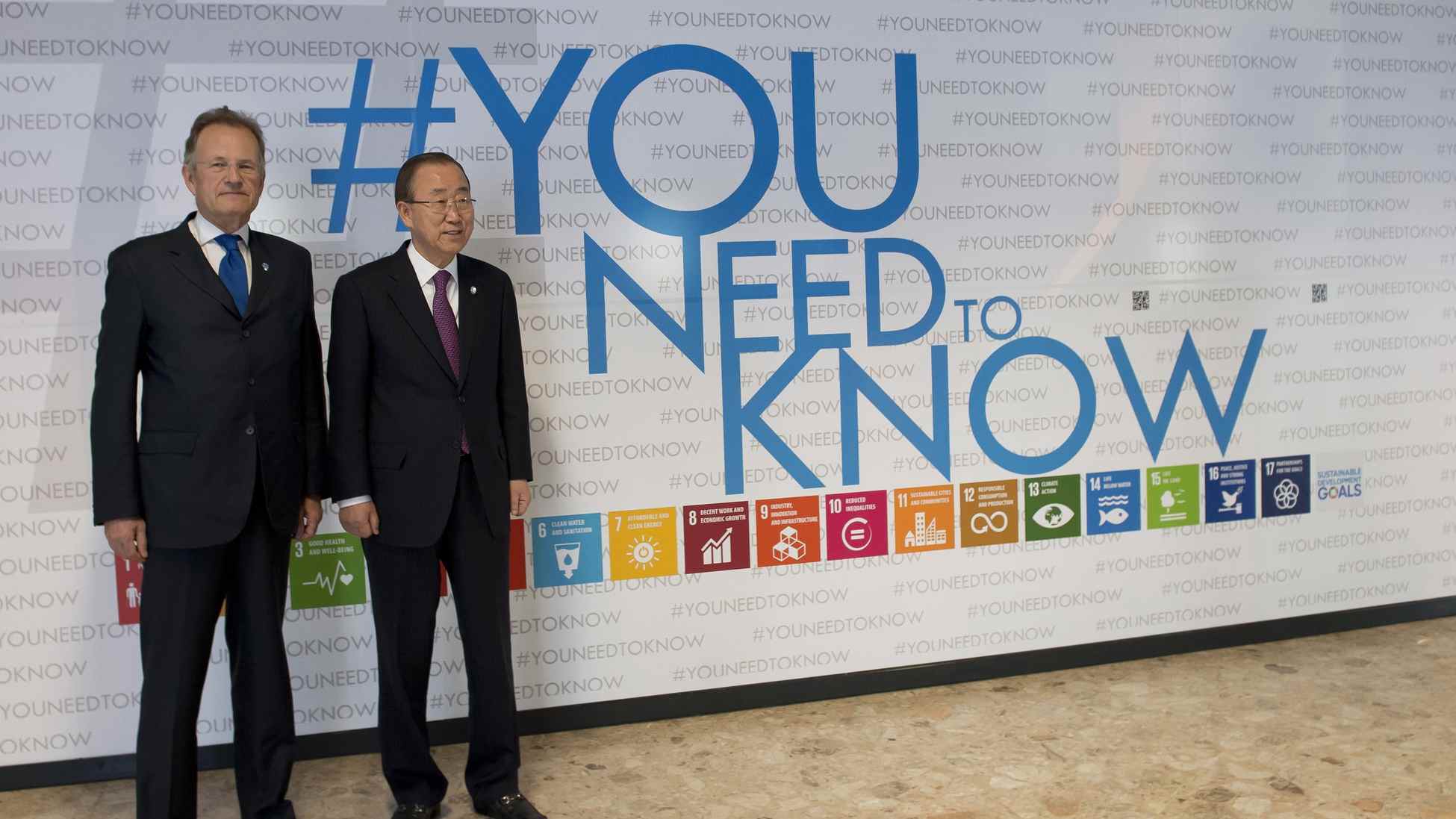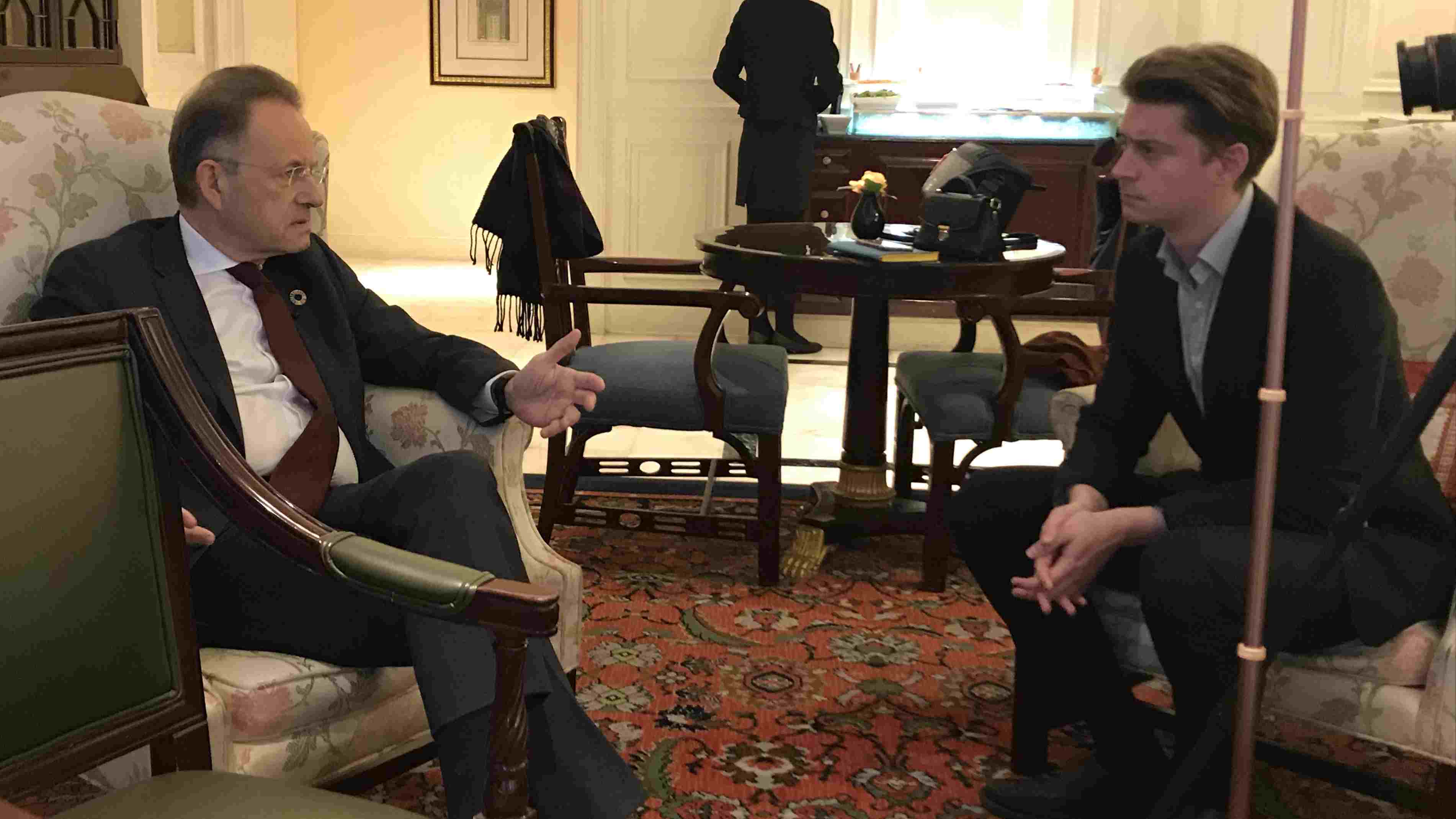
Politics
23:09, 16-Nov-2018
UN's Moller: Multilateralism has delivered, but rules can evolve
Updated
22:36, 19-Nov-2018
By John Goodrich
01:10

Senior United Nations official Michael Moller has expressed confidence that the recent trend away from multilateralism is temporary and stressed that global cooperation is the only way to tackle the world's problems.
Read more:
Moller, the director-general of the United Nations Office at Geneva, said in an interview with CGTN on Thursday that the model of governance around the world is in transition, but the principles of multilateralism had delivered over the past 70 years and must be maintained.
"We're living in a world where the problems facing us are of such an existential magnitude that there is absolutely no way that one country or any one organization can deal with them on their own," Moller said. "We are only going to solve these problems if we do it in partnership with others."
Moller argued that the "concerning" trend was broader than simple unilateralism, and accepted that some changes to existing rules were necessary.
01:53

"It's very concerning, but I think it's also a temporary phase. There are many reasons for it. It's not just unilateralism, it's also walking away from the rules, walking away from the norms, walking away from standards, walking away from international law which I think just doesn't make any sense.
"It doesn't mean that we have to go back to the same rules that we had, because clearly many of them were deficient and antiquated. But we do have to sit down and decide how we're going to move forward and how we're going to run the affairs of the planet in a logical way, because right now we are not," Moller said.
The world is in a period of slow transition away from the state-centric model towards a system whereby more stakeholders have a seat at the decision-making table, Moller said, highlighting the role of business and civil society in delivering the UN's Sustainable Development Goals (SDGs).
"Civil societies are coming around the decision-making table in a way we haven't seen before. And this is part of a trend that we're seeing. We're really in the middle of an interesting transition in terms of governance.
"It's a system that hasn't quite been structured yet and it certainly hasn't been legitimized entirely yet, but it's a transition and we're moving in that direction. All transition phases are difficult, when you sit between two chairs nonsense happens, and that's pretty much what we're living right now," Moller said.

Then UN secretary-general Ban Ki-moon (right) and Michael Moller, the director-general of the United Nations Office at Geneva, unveil an awareness campaign for the Sustainable Development Goals, Geneva, November 16, 2016. /UN Photo
Then UN secretary-general Ban Ki-moon (right) and Michael Moller, the director-general of the United Nations Office at Geneva, unveil an awareness campaign for the Sustainable Development Goals, Geneva, November 16, 2016. /UN Photo
Moller, who's in China to give the keynote speech at the Xiong'an International Health Forum and to address students at Peking University, argued that the SDGs were one of the most positive tools to show the benefits of global collaboration.
The 17 SDGs adopted by the UN in 2015, covering areas from poverty and education to inequality and climate, interconnect with the aim of leaving no one on the planet behind.
"It's become this extraordinary global roadmap where everybody finds themselves on the same page, and that has created a momentum that we haven't seen before," Moller said.
Three years into a 15-year plan, Moller is confident that the targets will be achieved but conceded that it is likely to happen "asymmetrically."
"We're lagging behind on a whole series of areas but we're also seeing some big strides, accelerations in others," Moller said. "Whether we'll reach all the goals in a symmetric level, I don't think so by 2030. It will be asymmetric. But everyone's pushing really hard."

Michael Moller, the director-general of the United Nations Office at Geneva, talks to CGTN in Beijing, November 15, 2018. /CGTN Photo
Michael Moller, the director-general of the United Nations Office at Geneva, talks to CGTN in Beijing, November 15, 2018. /CGTN Photo
"I'm pretty hopeful if we don't get all of it by 2030 then maybe we'll get it by 2035, in some cases we'll get it before," Moller said.
Moller also stressed the role of the UN as a bridge between the short-term nature of electoral politics and the long-term solutions most communities require, noting that the short electoral cycle often undermine national leaders' will to make decisions for the future.
"I think it is not a problem that is as acute and problematic as it used to be, precisely because others are stepping up to the plate. Civil society, individuals, the business community, everybody is actually pulling their weight. So it's not as catastrophic if a government does not step up to the plate as much as it should, because its population and others are taking up the slack," Moller said.
One area in which non-state actors are playing a vital role is in fighting climate change, which Moller said is by far, the world's most pressing issue.
"If we don't manage to deal with it, it doesn't really matter about the other problems because we're not going to be around to deal with them. So we really have to pull together," Moller said.
(Videographer: Bi Junxin)
6km

SITEMAP
Copyright © 2018 CGTN. Beijing ICP prepared NO.16065310-3
Copyright © 2018 CGTN. Beijing ICP prepared NO.16065310-3